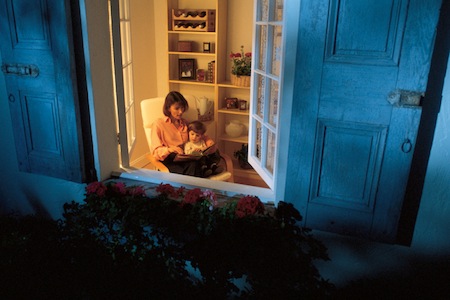Mistakes in parenting are inevitable, but regrets are harder to bear. For Kate McGuinness, not listening to her instincts has proven the most difficult hurdle to overcome.
After longing for a child for years, I adopted a baby boy 23 years ago and felt a whole-hearted love I’d never before experienced. However, with that love came bottomless concern about his well-being. A compulsive worrier, I’ve anxiously analyzed each developmental quirk and spent hours pondering past and future parenting decisions.
Fortunately, the passage of time has shown that most of my judgments had no permanent detrimental effect. As to the rest, it’s difficult to know if a different decision would have resulted in a better outcome.
But if I had the magical opportunity for a “do over,” I would change several decisions and hope for a different outcome. At the top of my list is allowing my mother to live in my home during my son’s first six years.
I’ve written before about her role in his early childhood. I worried about the negative influence of her refusal to enforce family rules and her smothering him. Smothering is a strong word, but perhaps not strong enough for her attachment to him.
She spent her days reading to him or playing with him or simply watching him. Her other grandchildren were adults. They and the rest of our family lived thousands of miles away. Because she had very few friends, my son became the focus of her life.
My husband told me not to worry, she was but one influence of many: mother, father, nanny, and two stepbrothers. Despite his reassurance, I became increasingly concerned about her effect on him. I agonized over asking her to move out of my home.
Other relatives began to guide my thinking. When my mother’s sister visited, she observed, “Your mother doesn’t let that child take a free breath.”
My mother-in-law’s laughing description of an interaction with my son weighed heavily on me too. On one of her infrequent visits, she sat by his bedside and read him a story. When she finished, he said, “Thank you. You can go now.”
Adults had sucked all the air out of his room.
Telling my mother she had to leave was the most difficult decision I have ever made. Racked by guilt, I asked my therapist for reassurance that I was doing the right thing. He answered, “The only thing an objective observer would criticize you for is not doing it sooner.”
I cannot identify with any certainty the result of my delay. However, I suspect if I had acted sooner my son wouldn’t be quiet and terse with older adults while he’s affable and lively with peers. But perhaps my cause and effect analysis is incorrect. His personality may have been shaped by other childhood experiences or by his birth parents’ genes.
Second on the list of revisionary parenting would be minimizing or eliminating my son’s access to computers, another controversy in which his father prevailed. Would my son have developed a love for reading absent the flashy excitement of computer games?
In my defense, I’ll say that as a child, the games he played were educational and not violent. Given his graduation from a leading liberal arts college, I don’t believe his intellect was stunted. In fact, he is enjoying reading more and more, a result he says of the digital book experience. But computer games remain his favorite recreation, and now his father worries that our son is addicted to them.
My regret in both of these cases derives from my failure to follow my instincts. If there’s any parenting lesson for others, it is to fight like hell to do what they know at the bottom of their hearts is best for the child. That is a parent’s responsibility.
Kate McGuinness is a lawyer who spent 17 years at Biglaw before becoming the general counsel of a Fortune 500 corporation. After leaving that position, she studied creative writing and is the author of a legal suspense novel Terminal Ambition, which is available on Amazon.com. She is an advocate for women and tweets as @womnsrightswrter.
Related Links:

